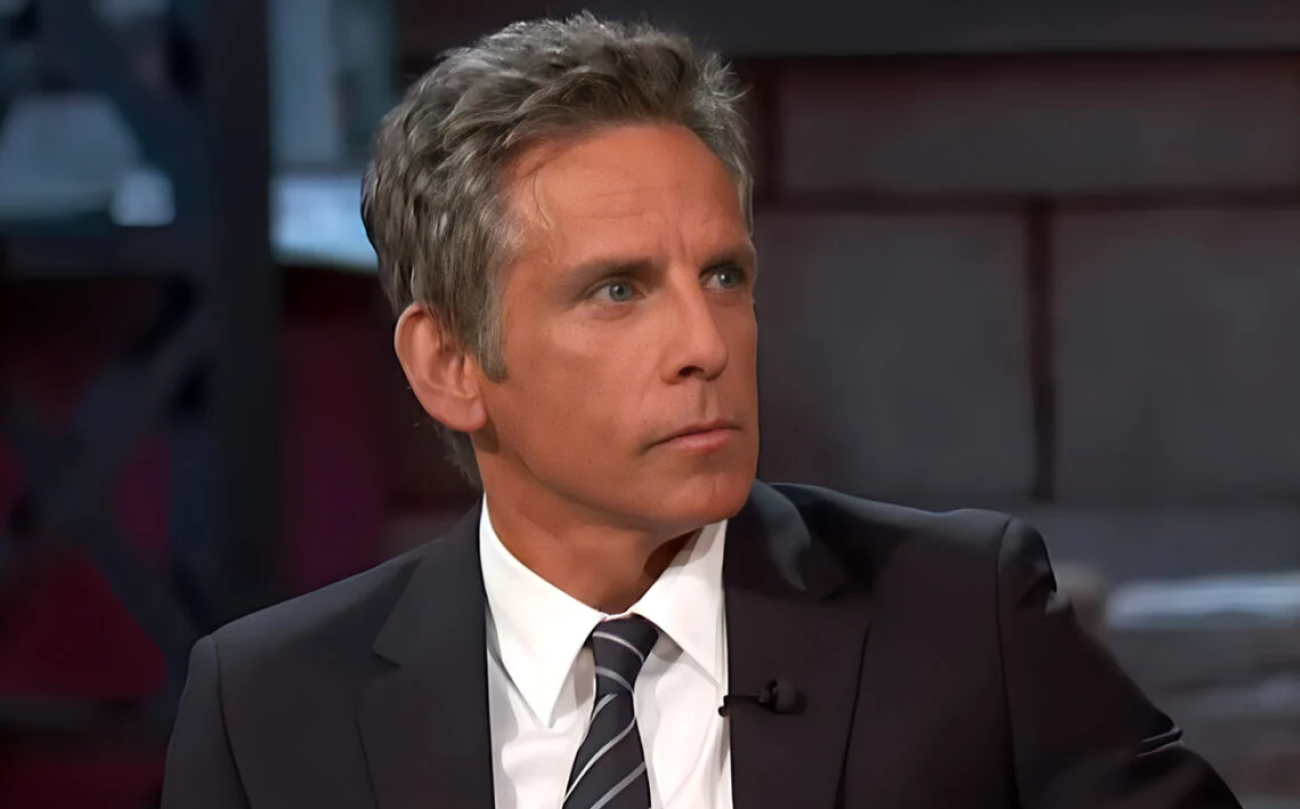Ben Stiller’s Criticism of Elon Musk Sparks Backlash: A Look at Hollywood’s Changing Narrative
In a surprising twist that has caught the attention of social media and news outlets, Ben Stiller’s recent comments about Elon Musk during an on-air appearance have sparked an unexpected backlash. Initially meant as a playful critique, Stiller’s remarks have instead ignited controversy, leaving many questioning the impact of humor on public discourse in today’s climate.
The Moment That Sparked the Debate
While appearing on the Caris Swier podcast, Ben Stiller, 70, made an unexpected comment about Elon Musk. Stiller humorously referred to Musk’s salute during a political event, calling it part of a so-called “mustache cult.” His intention appeared to be poking fun at Musk’s eccentricities, particularly his behavior at public events, which Stiller felt seemed exaggerated and theatrical. Stiller acknowledged Musk’s quirky persona, referencing Musk’s fondness for films like Tropic Thunder, but found some of his actions, like the salute, hard to comprehend. “I know he really likes Tropic Thunder, but then he went off the deep end with that salute,” Stiller remarked during the podcast, trying to balance humor with a critique of what he viewed as overblown gestures by Musk and the media.
The Backlash: Misjudged Humor?
Instead of receiving the lighthearted chuckles Stiller may have expected, his comments were met with criticism from various quarters. Some critics felt that Stiller’s remarks came across as shallow, relying on tired talking points rather than offering any meaningful insight. The “mustache cult” reference, in particular, was seen as trivializing complex issues. Many felt that such a comment turned a serious public figure into a mere caricature. One critic commented, “It feels like he’s oversimplifying things, reducing a multifaceted individual to a punchline.”
This has led some to question whether Stiller’s remarks were more than just a joke. Could it be that the humor was meant to distract from deeper, more complex issues within the broader political and social landscape? In today’s world, where statements from public figures are heavily scrutinized, even casual remarks can quickly escalate into debates about media manipulation, truth, and accountability.
The Roots of the Tension
The clash between Ben Stiller and Elon Musk has been simmering for a while. Musk has previously spoken out against what he perceives as a biased media narrative, often calling out Hollywood elites for pushing narratives that, in his view, distort the truth. On his social media platforms, Musk has warned against sensationalism, encouraging a focus on real issues like corporate responsibility and social reform.
Stiller’s comments, while intended to be humorous, seem to have inadvertently reinforced some of the very media tropes he may have been criticizing. Instead of offering a fresh take or constructive criticism, his remarks have been interpreted by some as an attempt to cling to nostalgic ideas of Hollywood humor. These kinds of jabs, while comedic in nature, often feel like cheap shots rather than insightful commentary.
Social Media Reactions: A Double-Edged Sword
The fallout from Stiller’s remarks has been amplified by social media, where users are quick to share and react to such comments. Some defended Stiller, arguing that his words were meant in jest and should not be taken too seriously. “It was just a joke, let’s not overanalyze it,” one user tweeted, emphasizing the comedic intent behind the comment.
On the other hand, many users criticized Stiller for distracting from more important topics. Some argued that reducing Musk to a “mustache cult” was an oversimplification that undermines conversations about innovation, social media’s role in shaping public opinion, and the responsibility of large corporations.
The Bigger Picture: Humor, Entertainment, and Public Discourse
The Stiller-Musk incident highlights broader concerns about the state of public discourse, particularly when it comes to humor and entertainment. In an age of instant communication and constant media consumption, a joke can quickly become a focal point for larger societal debates. In this case, Stiller’s attempt to poke fun at Musk’s eccentricities turned into a discussion about the limits of humor in addressing real-world issues.
The controversy also reflects the challenges of navigating a media environment where satire and humor can often be misinterpreted or used to push narratives that don’t promote meaningful dialogue. Humor has always been a tool for commenting on social and political issues, but as the lines between entertainment and politics blur, it’s becoming more difficult to distinguish between lighthearted jokes and serious commentary.
Conclusion: A Call for Thoughtful Dialogue
Ben Stiller’s comments about Elon Musk—intended as humor—have highlighted a larger conversation about the role of entertainment in public discourse. While many still support the right to use comedy to critique and entertain, this incident serves as a reminder that humor must be wielded carefully, especially when it intersects with real-world issues.
As we navigate a world where every statement is magnified and analyzed, it’s crucial for public figures to engage in thoughtful, responsible communication. Satire can be a powerful tool for sparking conversation, but it should always be used with an awareness of its potential impact on society. Moving forward, we must all strive for dialogue that not only entertains but also promotes deeper understanding and informed discussions.
